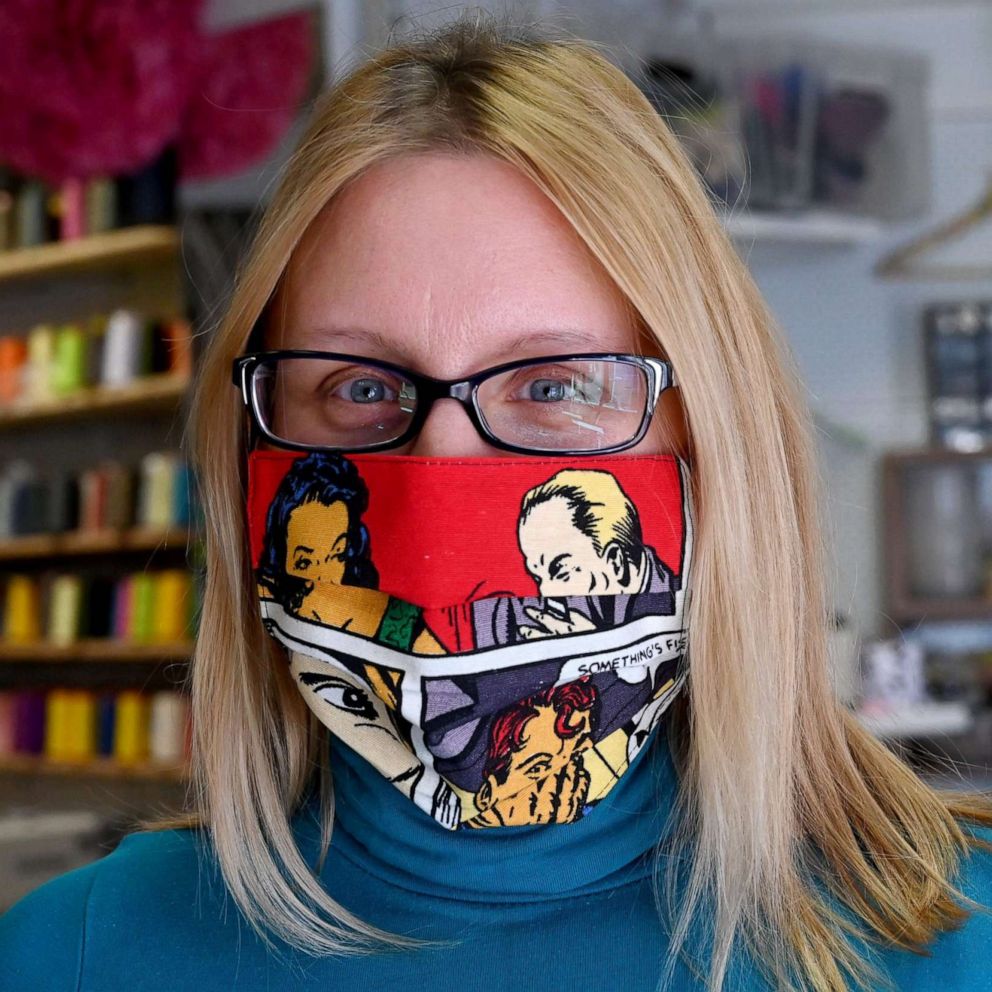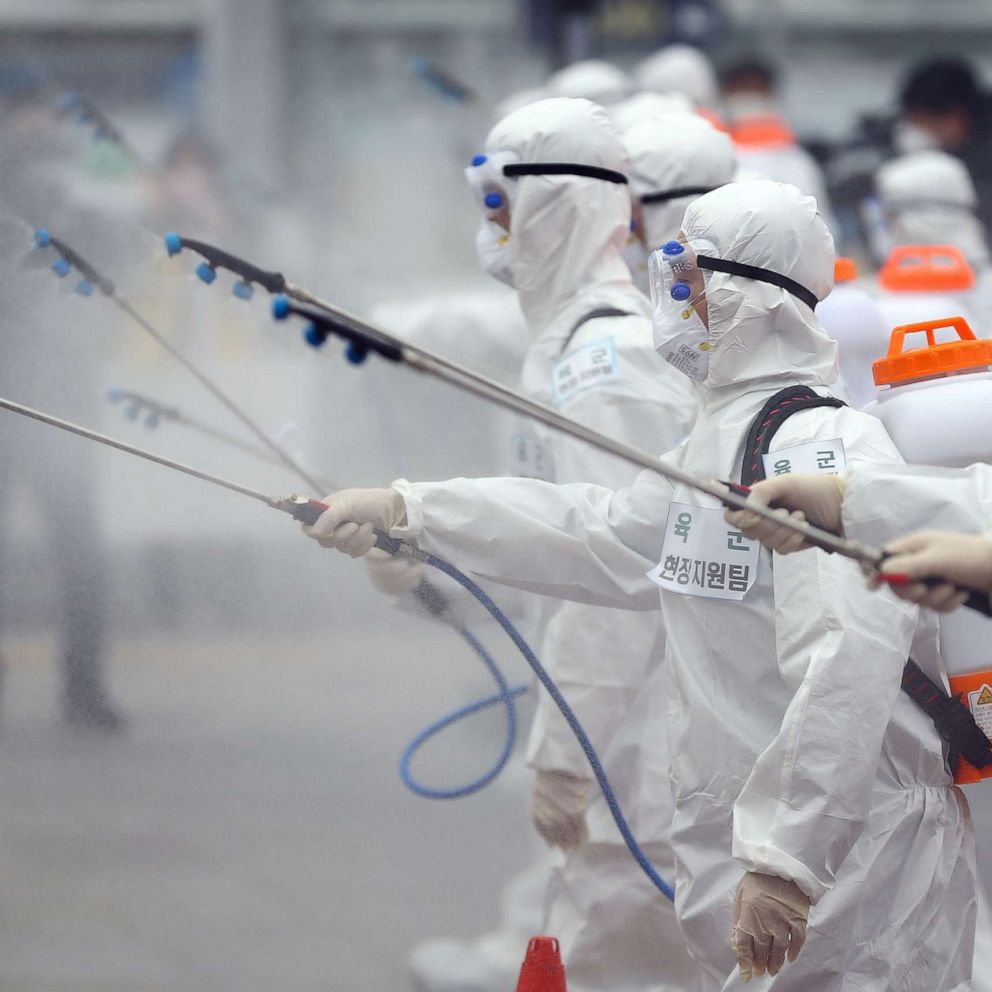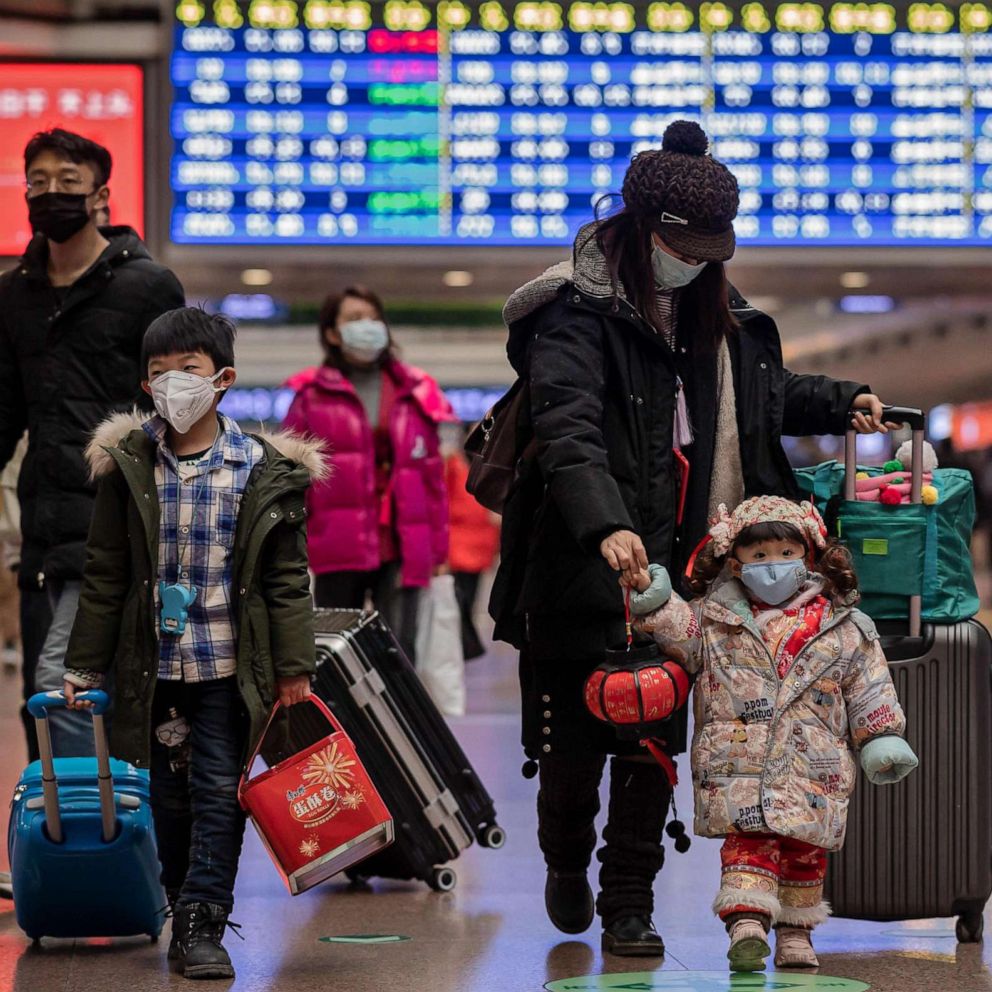Coronavirus government response updates: Trump presses states to reopen even as he concedes 100K deaths possible
Trump revised his death toll prediction from about 60,000 to now 100,000 lives.
As he prepares to travel across the country to Phoenix Tuesday, and with Monday another day without a coronavirus task force briefing, President Donald Trump is continuing to use other venues to highlight what he insists is his administration's strong response to the deadly pandemic.
Yet, even as he pushes for the country to reopen, he conceded Sunday that the U.S. death toll may reach 100,000 lives, as opposed to the roughly 60,000 "minimum number" he has touted as a success.
"I'll tell you one thing. We did the right thing and I really believe we saved a million and a half lives," Trump told Fox News during a "virtual" town hall at the Lincoln Memorial. "It is horrible to go through, but it is working out."
Tune into ABC at 1 p.m. ET and ABC News Live at 4 p.m. ET every weekday for special coverage of the novel coronavirus with the full ABC News team, including the latest news, context and analysis.
![PHOTO: President Donald Trump speaks during a Virtual Town Hall inside of the Lincoln Memorial in Washington, DC., on May 3, 2020.
(Photo by Oliver Contreras/SIPA USA) (Newscom TagID: sipaphotosten755919.jpg) [Photo via Newscom]](https://s.abcnews.com/images/Politics/trump-02-nc-jt-200504_hpEmbed_3x2_992.jpg)
Despite the rising death toll, Trump pressed for governors to speed up reopening, saying, "Some states, I think, frankly, aren't going fast enough." Half the states eased some guidelines over the weekend.
Within feet of the iconic statue of Lincoln appearing to look down on him as he spoke, Trump complained that despite what he calls his successes, he's been treated worse by a "hostile press" than the assassinated president.
He also said Sunday that he believed a vaccine could be available by year's end -- something many health experts say is necessary before the nation can safely reopen in full.
Even as cases in Washington, D.C., continue to rise, the Senate reconvenes Monday, and lawmakers are supposed wear masks and take other social distancing precautions. The standoff over liability protections and fight over aid to state and local governments continues.
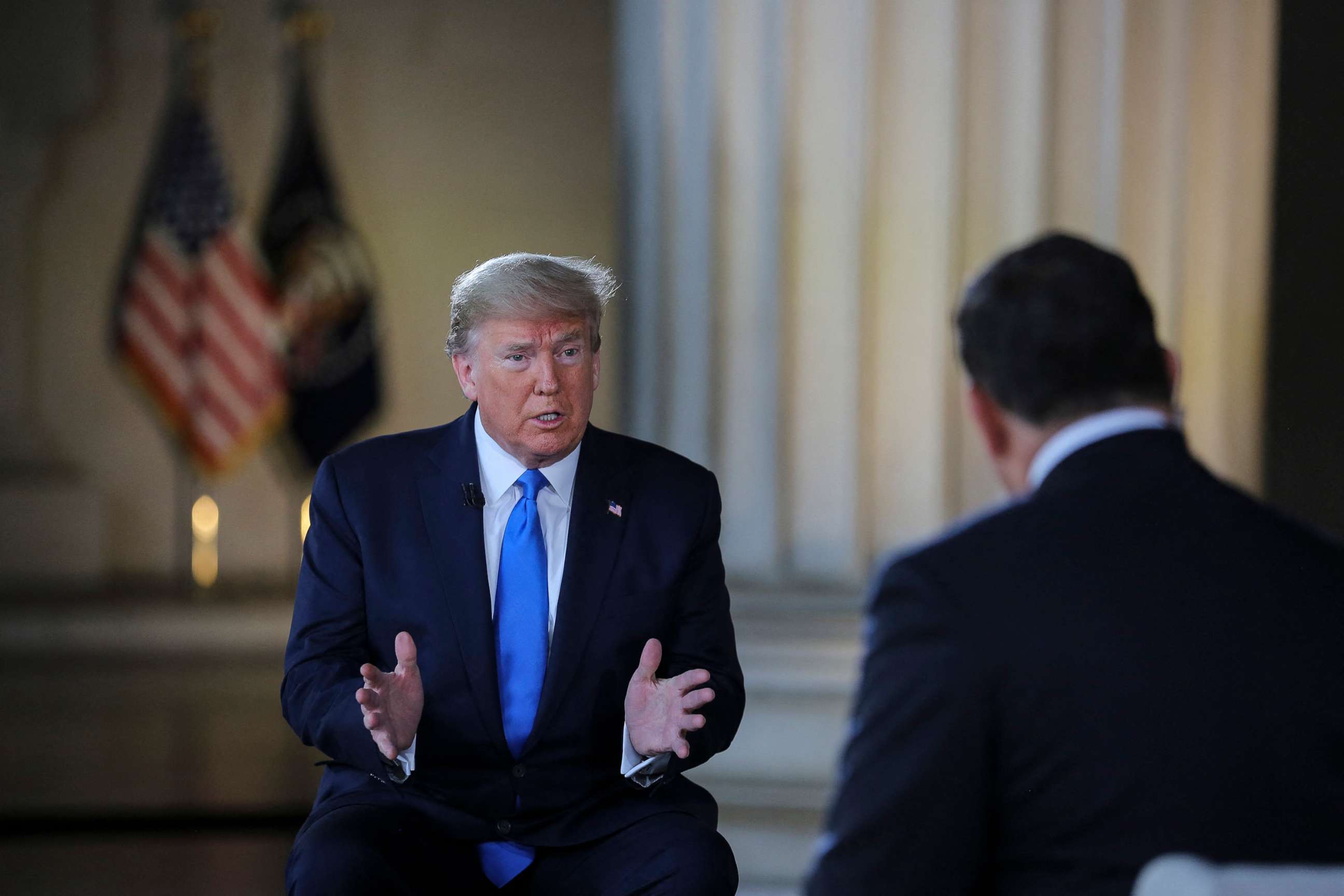
Here are Monday's most significant developments in Washington:
- Trump has no public events on his schedule ahead of a trip to Phoenix Tuesday
- Pence leads a teleconference with governors on COVID-19 response
- Birx says WH always predicted 100 to 240k deaths with mitigation
- Senate lawmakers return to Washington, told to practice social distancing as virus divides Congress
- The Supreme Court hears oral arguments via historic teleconference
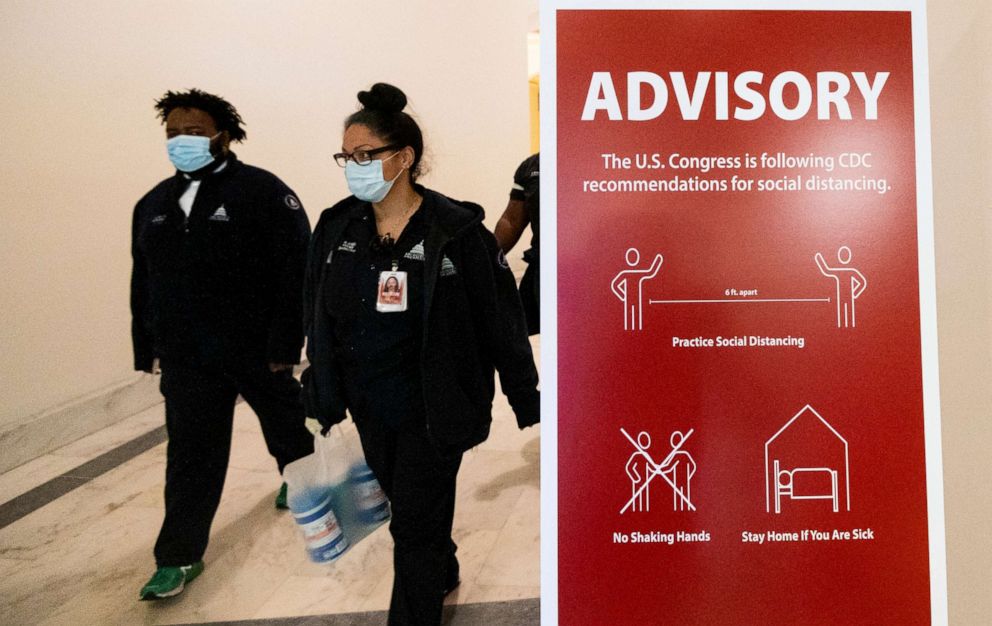
Here are the latest developments in the government response:
The Senate reconvenes as coronavirus divides lawmakers
Senators returned to the Capitol Hill in full force Monday for the first time since March 26, facing a full slate of coronavirus-related concerns and partisan disagreements on how to handle it.
Senate Majority Leader Mitch McConnell defended his decision to call lawmakers back, saying from the Senate floor: "This deadly coronavirus does not take days off. And so the United States Senate has not either."
"I don't think anybody could show us they argue that filling critical national security posts is not essential Senate business," McConnell said, confirming that federal appointments will be a priority for the Senate in the coming weeks.
But Minority Leader Chuck Schumer questioned McConnell on his motivations for rushing members back to the Capitol in the middle of a pandemic, claiming the leader's top priority is appointing conservative judges.
"If we are going to make these fine people come into work in these conditions," Schumer said, speaking of other employees on Capitol Hill, "let the Senate at least conduct the nation's business and focus like a laser on COVID-19. At the moment, the Republican leader has scheduled no significant COVID-related business for the floor of the Senate."
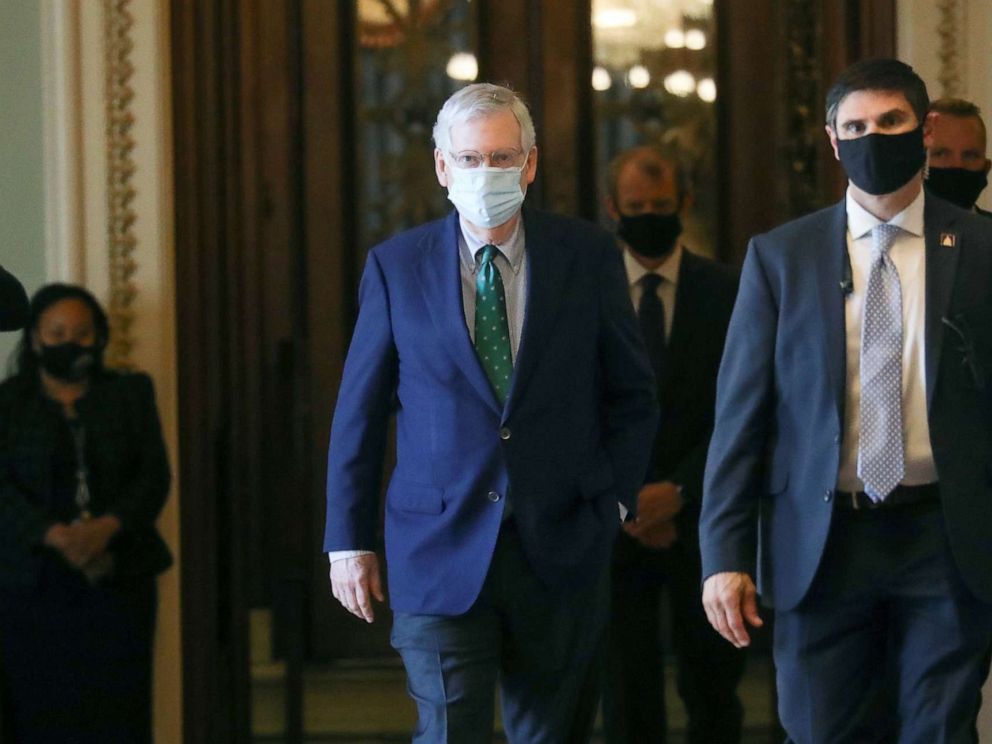
Some senators, including McConnell, were seen in masks walking to and from the chamber.
For their first order of business, the Senate debated the nomination of Robert Feitel to be Inspector General of the Nuclear Regulatory Commission. A final confirmation vote is expected later Monday.
The House, meanwhile, continues to weigh a return of its full membership as early as next week.
Mnuchin says $175B of Paycheck Protection Program money used
Treasury Secretary Steven Mnuchin, in a phone interview with Fox Business Monday, said that $175 billion of the second tranche of money allocated to the Paycheck Protection Program has been allocated and that there have been 2.2 million loans at an average size of $79,000.
He acknowledged there were some hiccups with the system but said they "couldn't be more pleased" with the impact, with 60 million set to benefit.
The fund is more the half way spent.
Asked about the potential for international travel to restart later this year, Mnuchin said it's "too hard to tell at this point" when international travel will restart but encouraged Americans to plan domestic trips.
"This is a great time for people to explore America," Mnuchin said.
ABC News' Jordyn Phelps and Sarah Kolinovksy
SCOTUS holds first oral arguments via teleconference
The U.S. Supreme Court on Monday is livestreaming its first-ever telephonic oral arguments, a high-stakes endeavor prompted by the historic disruption to court operations during the coronavirus pandemic
Millions of Americans will for the first time were able to experience the nine justices together at work -- a virtual civics lesson on an entire branch of U.S. government that conducts most of its work out of the public eye.
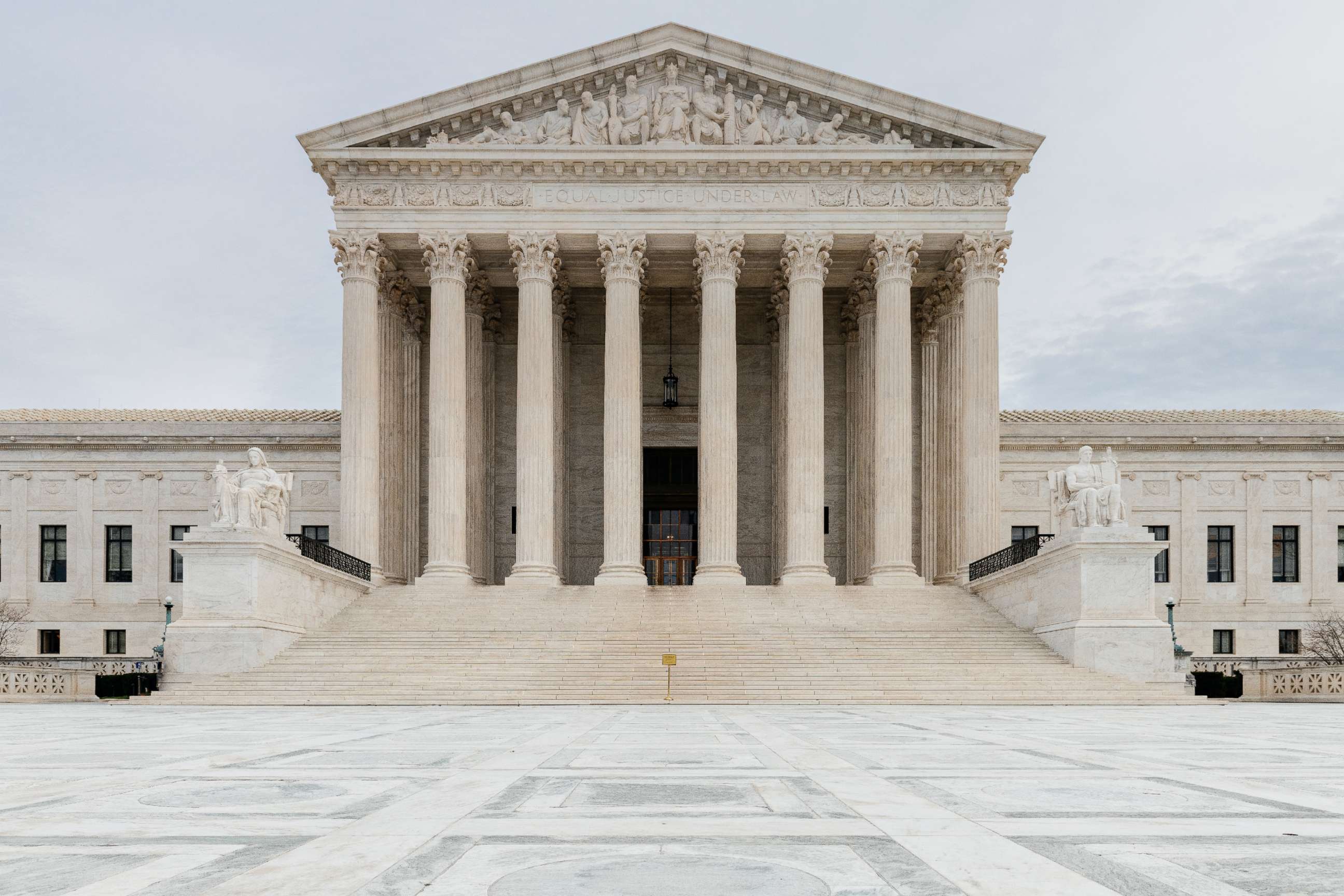
It's also the first opportunity for a sitting American president -- one who is party to cases before the court -- to tune in live and potentially respond via Twitter.
The high court will hear 10 cases by phone over the coming weeks.
Urgent deadlines in several cases, including President Trump's appeal of subpoenas for his financial records -- which expires at the end of the year -- required the court to devise a new way of doing business in the near term.
ABC News' Devin Dwyer
FDA revises policy on antibody tests
The Food and Drug Administration has updated what is required to start using antibody tests.
It says early on they allowed more flexibility for labs to use their own antibody tests because that was necessary.
Now they want labs and companies to seek emergency authorization and provide validation that their test works within 10 days of starting.
Under this revised policy, the FDA has outlined the following expectations for antibody test developers:
"Commercial manufacturers will submit EUA (emergency use authorization) requests, with their validation data, within 10 business days from the date they notified the FDA of their validation testing or from the date of this policy, whichever is later. Furthermore, the FDA has provided specific performance threshold recommendations for specificity and sensitivity for all serology test developers," the statement released Monday said.
ABC News' Eric Strauss
What to know about coronavirus:
- How it started and how to protect yourself: coronavirus explained
- What to do if you have symptoms: coronavirus symptoms
- Tracking the spread in the US and Worldwide: coronavirus map
